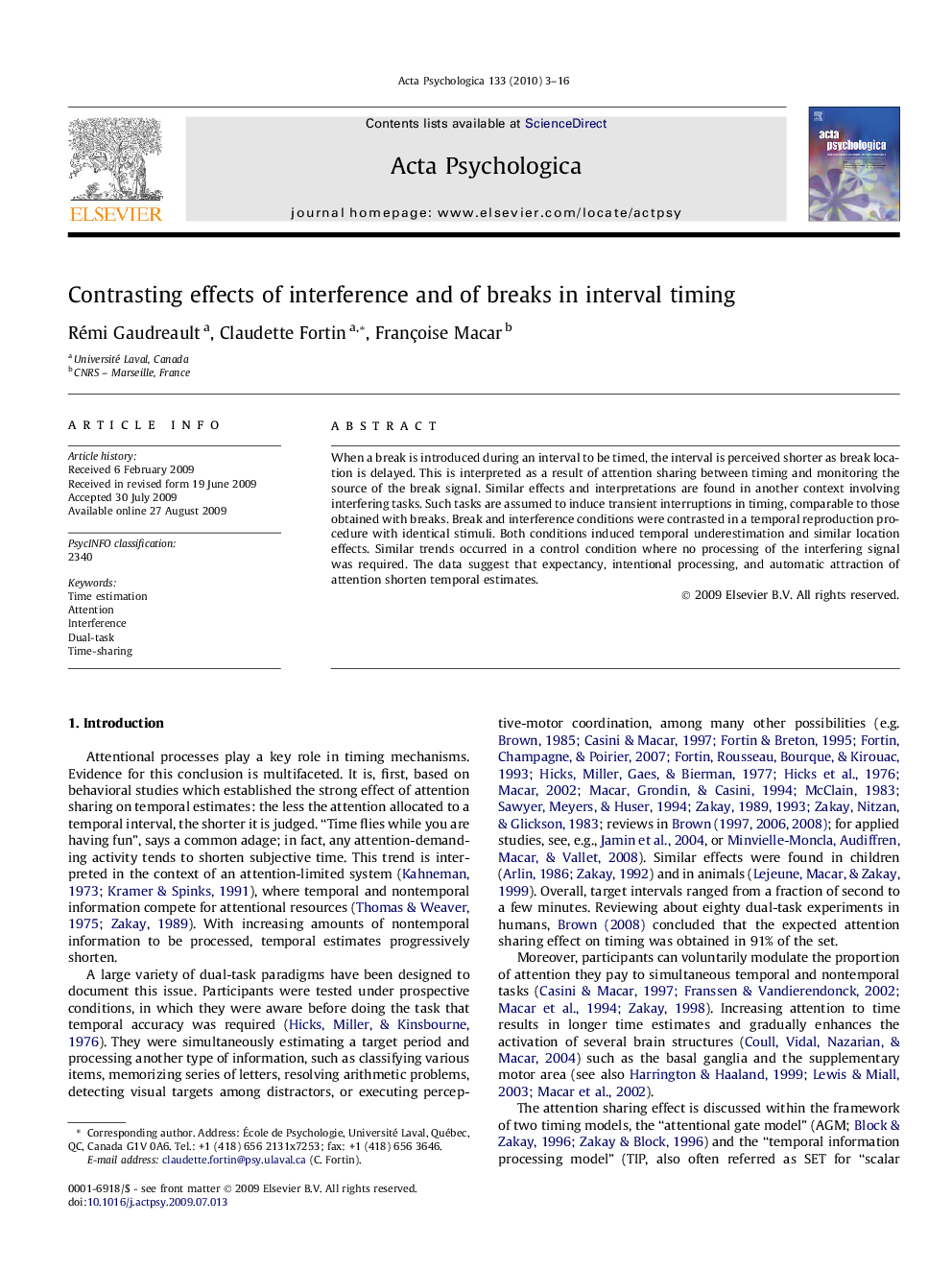| Article ID | Journal | Published Year | Pages | File Type |
|---|---|---|---|---|
| 920200 | Acta Psychologica | 2010 | 14 Pages |
When a break is introduced during an interval to be timed, the interval is perceived shorter as break location is delayed. This is interpreted as a result of attention sharing between timing and monitoring the source of the break signal. Similar effects and interpretations are found in another context involving interfering tasks. Such tasks are assumed to induce transient interruptions in timing, comparable to those obtained with breaks. Break and interference conditions were contrasted in a temporal reproduction procedure with identical stimuli. Both conditions induced temporal underestimation and similar location effects. Similar trends occurred in a control condition where no processing of the interfering signal was required. The data suggest that expectancy, intentional processing, and automatic attraction of attention shorten temporal estimates.
